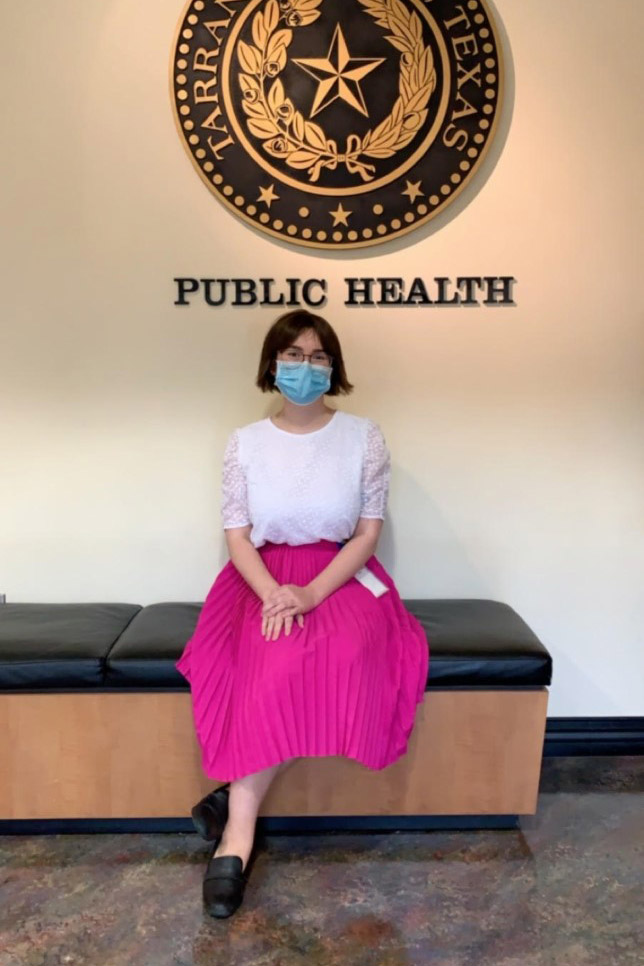Each patient’s story illuminates Tarrant County COVID data, strengthens contact tracing
HSC 2020 graduate Julia Aiken was finishing the last semester of her MPH in Public Health Practice when COVID-19 arrived. By May, she had finished her degree and was helping Tarrant County Public Health’s (TCPH) with contact tracing efforts to track and help stop community spread of the virus.
Aiken volunteered extra hours above her temporary work schedule, eventually joining TCPH full time this summer as an Epidemiology Specialist managing a data intake team.
Every aspect of Aiken’s work begins with people.
When a person tests positive for COVID-19, the public health department is notified. Intake teams like Aiken’s receive case reports for database entry, beginning a process where even the smallest details of a patient’s history are studied for important clues.
As with any virus or infectious disease, it’s a lot like solving a puzzle, looking for pieces of information that fit together, to uncover a trail or series of circumstances leading from person to person.
“Sometimes the data we receive is basic – name, age, contact information, lab results – but with expanded records, we get a better glimpse of a patient’s history, where the person has been, how the virus may have been contracted, and others who could have been infected as well,” Aiken said.
“If the patient resides in a nursing home or other close-contact community setting, if someone else in the family has recently been ill, if the person has traveled, all those things give us more detail and show where we need to follow up to help keep others safe.”
Aiken and her team are focused on the people behind the numbers of COVID cases.
While data does represent numbers, facts, figures and correlations, it also tells stories. Data provides important insight leading to discoveries and ways of solving problems. It has the potential to save lives.
“How we manage the database really matters, as our work begins a process that other case teams will move forward through the public health department,” she said. “Taking the time to read each case carefully, looking for even the smallest details that might be important, gives the follow-up teams a better perspective on where to go next.”
The work that begins with Aiken’s team leads to other investigators and contact tracing efforts, where TCPH workers call patients; reach out to other, potentially impacted individuals and groups; monitor, report and resolve each case. With the dramatic 2020 numbers of positive COVID cases and deaths, that has resulted in a tremendous effort for Tarrant County and other communities around the U.S.
“It has been an all-hands-on-deck response for TCPH and other public health departments,” Aiken said.
Cooperation among health departments has been important, especially in tracking cases to their appropriate home counties.
“In large, metropolitan areas like Dallas/Fort Worth, a person may reside in one city but get tested in another. The data teams work closely with other public health departments, as well as local clinics, hospitals and testing facilities, to route the patient records appropriately,” she said.
TCPH training reminds COVID worker teams to connect with patients first as people. The job, Aiken said, is one that’s approached with investigative curiosity, care and respect.
“Spending time with the records gives you a real feel for what patients are going through. You learn about their families, their likes and dislikes, their personal situations, who they really are.”
“Public health prevention has to have a foundation of good data, and good data comes from seeing people behind the numbers,” she said. “We do it because we care about the public, and we take the extra time to evaluate all the details that may be helpful to a case and the larger efforts.”
“I feel like that’s my duty right now.”







Social media